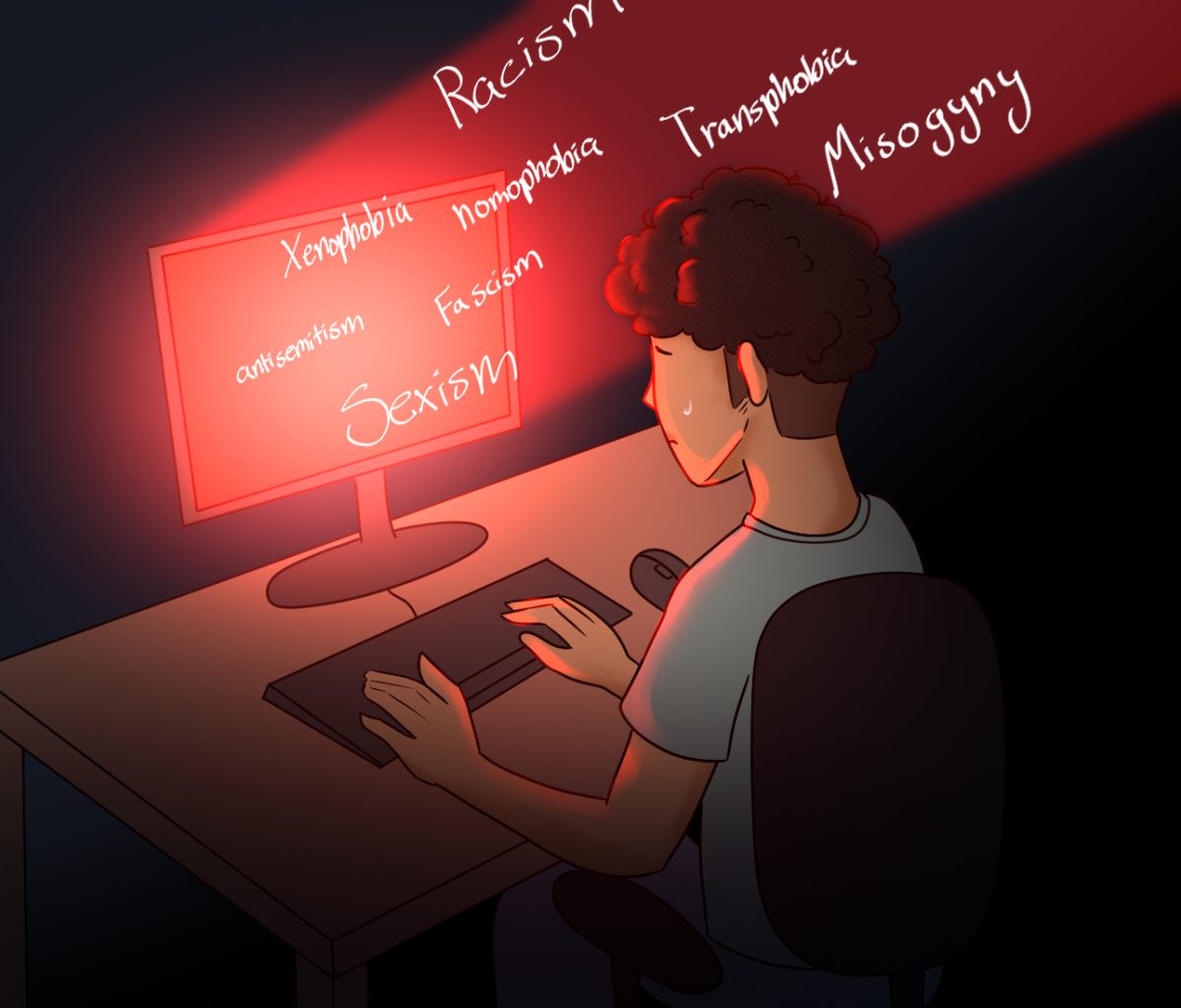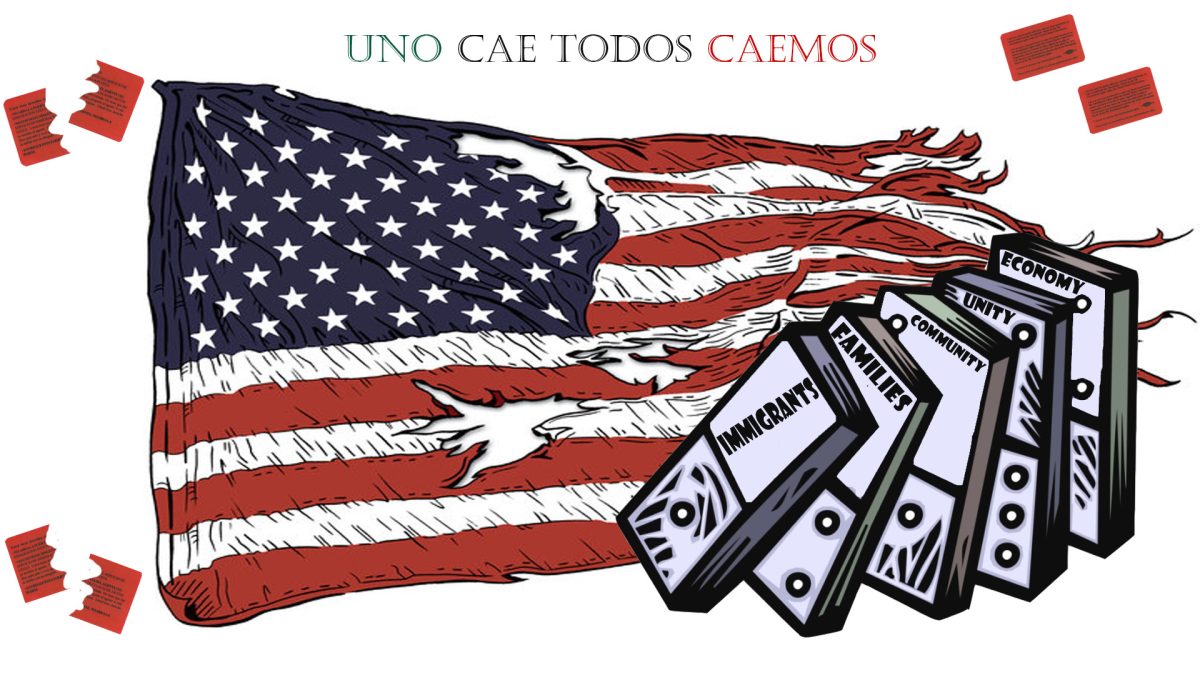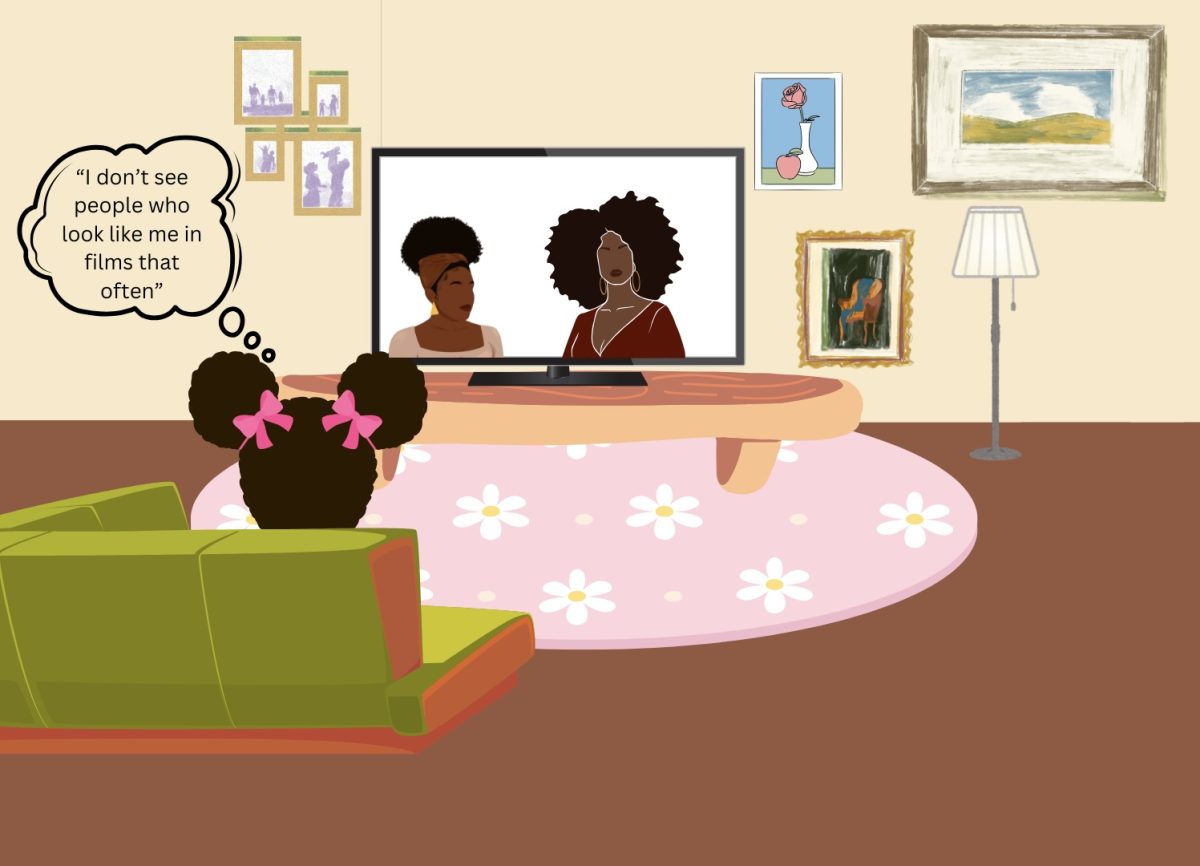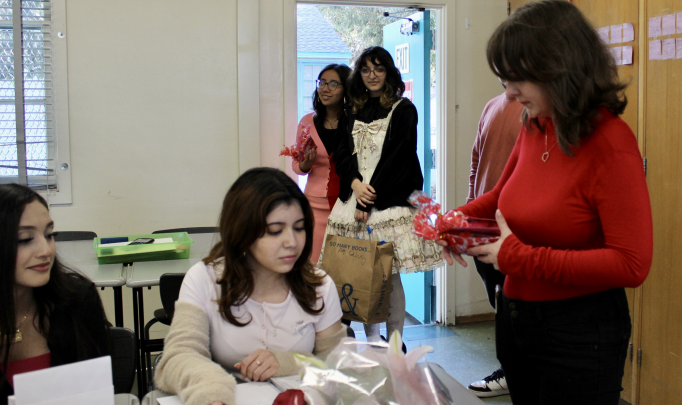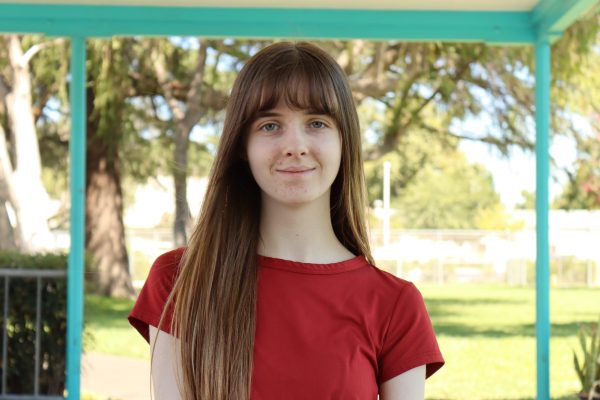For a brief moment in my life, I subscribed to far-right thinking. I was young and vulnerable at that time and would otherwise say that I opposed racism and homophobia. But in 2020, that all changed. I ended up escaping it but I always wondered why it ever happened in the first place.
We should be more wary of extremist language and media we see online. I, like many others, have succumbed to the “alt-right pipeline.” This is a phenomenon that happens when social media algorithms feed into ideas that start as conservative and then devolve into fascism or religious fundamentalism. I was lucky enough to escape it. But many others haven’t. Some have experienced this but with far-left politics, leading them to subscribe to ideas such as communism and anarchism. Both are examples of social media leading people to believe in much more extremist ideals, which translates into real-life conflict.
In 2020, a neo-Nazi group linked to a bomb plot against a Las Vegas synagogue had their leader arrested. It was found that their leader was not only in Estonia – over 5,000 miles away from the United States – but he was a 13-year-old boy. This particular group that he led was created in 2018 and inspired by other white supremacist groups as well as some of the worst mass murderers of recent memory. This is proof that violence can be perpetrated not only by young children but also by people who are thousands of miles away from each other.
And although not as prevalent, the far-left could have the same destructive power as their right-wing counterparts. For example, the Capitol Hill Occupied Protest (CHOP) in June 2020 started with good intentions but developed into violence, fearmongering and armed militias sweeping the streets. After a month of occupation, it would be cleared of occupants by police on July 1. As with most protests, CHOP was organized and administered online through large social media platforms like Twitter and Facebook.
2020 and 2021 were highly political years due to the presidential elections. One of the most memorable events was the insurrection on Jan. 6, 2021. Most people know that it was incited by Trump, with hundreds of his supporters attacking and infiltrating the Capitol Building. What a lot of people don’t know is that many of those supporters were part of a group called QAnon, which started life as a run-of-the-mill conspiracy theory collective that would go on to become adamant Trumpists.
Because much of modern political discourse is perpetuated on the internet, there is very little room to have formal debates with one another. Platforms such as X (the platform formally known as Twitter) and TikTok could theoretically host healthy political discourse, but the short-form nature of these platforms makes it difficult to make strong or compelling arguments. Oftentimes, the political influencers on these platforms seek more for user engagement, such as views, comments and likes, rather than constructing meaningful stances.
Some might say that these pipelines don’t exist. They may say that you are responsible for your algorithms and what you see. After all, it’s based on what you consume the most. But it’s not about consumption. You can be left-leaning or right-leaning and have a completely healthy life. The problem arises when you over-consume and let the content consume you, leading you to darker, much more extreme places. That’s what happened to me in middle school when I was left-leaning but overall apolitical.
I am not a sociologist, but a victim of these diabolical philosophies. If I could suggest any ways to combat the disturbing rise of violent ideologies, I would first recommend education on these issues. When I was a young tween, all that was taught about internet safety was to never meet creeps online, but the creeps have adapted, dressing in sheep’s clothing and pulling innocent children into their sphere of influence.
We need to teach kids, even as young as elementary students, that there are people who are willing to lie to gain power. I would also suggest that we should give a reason to trust the current system we have, for most peddlers of these philosophies wish to sow distrust in our hearts and minds, further dividing neighbors and friends from each other. If we ever wish to make meaningful change, we must stand strong as a community, rather than a fringe group of evildoers.
Because of the haphazard use of political language, people who don’t know any better would be more likely to accept increasingly extreme views. They will be less likely to seek out views differing from their own and even actively reject them, getting caught in an echo chamber in the process.
As this keeps happening, violent crimes perpetuated by political agendas will continue to rise. It is my firm belief that social media sites should limit political topics or else sentiments like this will start to become more common.


